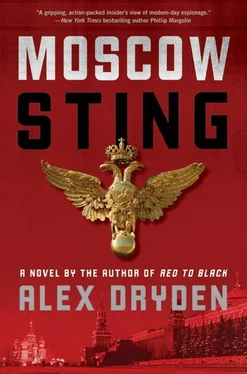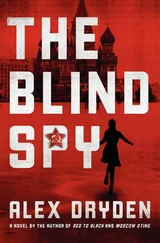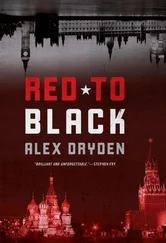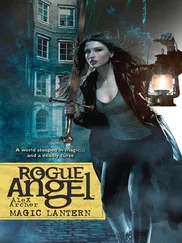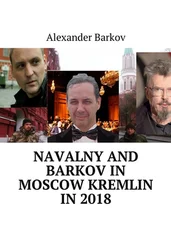It was a street of variegated delights, he observed, not a mall, not a grey mush of globalised names. Each had its own identity.
He stepped off the narrow pavement to allow two laughing women to pass. They were in their early twenties, Logan guessed; his own kind, Americans—and tourists, a rarer sight in Europe in the past few years. Logan recognised the accent of his home state of Pennsylvania.
The women’s eyes lingered slightly longer than necessary on the man who’d moved aside for them. Logan was smiling easily at them, apparently to encourage their laughter.
They returned his smile with a lack of constraint that, if he hadn’t been on his way somewhere, might have encouraged him to say something that backed up the invitation of his smile.
But he walked on.
The street was full of tourists. Paris was emptied of Parisians now that it was August, and replenished with visitors. The older, established restaurants were closed for the French vacation, and the waiters left behind to serve the visitors in pavement cafés—as a punishment, they seemed to think—were surlier than usual, the heavy heat sweating out tempers that were short enough at the best of times.
Identity hung for a moment in Logan’s thoughts. Perhaps it was triggered by the individual nature of the shops he was passing. But introspection never troubled Logan for long. He was a watcher, a listener, a man who looked outwards rather than in; a highly trained expert in visual observation who could spot the faintest movement of an enemy on a distant hillside.
Logan could also analyse the mood and even the intentions of friend or enemy in seconds. He possessed the knack of ruthlessly forming in his mind a usually accurate critique of others. He knew how to elicit the responses he wanted from people—like the women he’d just passed.
Logan’s start in life—born into a wealthy family who’d lived three generations in southern Pennsylvania—and his own natural talents had promised great things. If anything, his many advantages—on the sports field, in the classroom, in social circles, and particularly with women—had threatened to be so diverse and successful that they could have led, as his father had warned, to his being spoiled for choice. But he had somehow kept all the balls in the air and progressed smoothly to Harvard, where, in the course of earning a summa cum laude law degree, he had been approached by the CIA, in the person of his recruiter, Burt Miller.
For Logan, it was an offer he couldn’t refuse. Everything had come so easily for him that all that piqued his interest were new challenges. Burt Miller’s huge personality and Logan’s own lack of direction had made the decision for him.
Was that his identity? he wondered now on this Paris street in this late, bright August afternoon. One that was laid over him by Burt Miller and the many other gurulike figures in his childhood—not to mention the numerous women of his adult years? Other people thought Logan had a superb mind—and they were right—but they didn’t see this unwillingness to look inside himself. There was an unexplored place there.
He continued up the street, weaving past the carefree tourists.
For nearly ten years now he’d been walking streets like this. They may not have had the style, the panache, of this one, but still the weariness of the footpad, the watcher, now welled up in Logan. In his old haunts in Bratislava, Belgrade, Sarajevo, Zagreb, Podgorica, with occasional visits to London, Paris, or New York, he had paced and apparently idled while what he was really doing was waiting and observing; the man on the outside looking in, the man who went to others, not they to him.
Since his disgrace—and subsequent exit from CIA employment—Logan’s lot had been that of the freelancer, but not to create newspaper stories. Logan was a freelancer of secrets.
For a moment he looked up at the faded red shop front of a fabrics atelier and imagined, in gold lettering, the words “Logan Halloran—Purveyor of Secrets” written on the cross beam. It would be a perfect fit in this street of specialists.
He turned off the rue du Temple toward the place where he would meet his contact, deciding to walk rather than take a taxi. It was hot, the sun still blazing at six in the evening, but in the narrow streets he could pick the shady side when the heat became oppressive.
The man he was to meet in half an hour was a former and potential source for him and, like him, a denizen of the secret world.
Thomas Plismy had spent most of his working life inside the French foreign intelligence service, the DGSE. Plismy had been a contact of Logan’s ever since the glory days when Logan was an agent under the guiding hand of the CIA station in Belgrade, the days when he was known by colleagues as “Lucky Logan.” But that had all gone wrong, and now, unlike Logan, Thomas still had the security of a government job. Logan’s thoughts were at once pricked by the long bitterness that memory contained.
Some once called Logan the best intelligence officer the CIA had in Europe’s southeastern sector, the “Balkan beat,” as the British called it. But then a deskman somewhere in Washington or Virginia had saved his own skin by flaying Logan’s, and he became the fall guy for someone else’s mistake in the Serbian war.
And so, at thirty-six years old, Logan had nearly a decade behind him doing what he was doing this evening, meeting contacts like Plismy, looking for a niche, an entry point, like a lone mountaineer on a sheer rock face. Logan was searching for a handhold of a different sort—some piece of information he could develop and add value to. And then sell.
Since his fall from grace, he’d sold secrets to anyone; to his former masters in America first of all, then to anyone else who had the cash. He often sold the same secrets more than once, to opposing sides in the world’s many secret intelligence wars.
Logan wondered, as he often did these days, how much longer he could go on chasing shadows. As so often, when this loneliness began to take him over, he thought of the life that he might have had, of his daughter Angelica and her mother, who he’d married when he was twenty-two years old. She had gone on to marry another man, a lawyer as it happened, and he hadn’t seen his daughter in six years.
But this evening was going to be different. Plismy was a kind of friend, he supposed. Logan vaguely thought he liked him better than most he dealt with. They would drink first, then dine somewhere Plismy knew that soared in quality above the tourist miasma—such places could be found, even in the dog days of August. Then they would go to a club, looking for paid girls. Plismy knew a lot of good places for that, Logan remembered.
But even though the meeting was more social than usual, Logan was working just the same. He was always working, he thought. That was the lot of the freelancer. No hours, no boss, no routine—it all sounded good until “no hours” turned into “all hours” and “no boss” into “no structure” and “no routine” into “chaos”; until work became life and vice versa.
The basic skill he deployed in all his meetings was to delude his contacts into believing that he was there simply to enjoy their company. Quite simply, he fielded what was perhaps his greatest skill and curse—his charm. Logan was everybody’s friend, and nobody’s. By this artifice Logan made people like Plismy freer in their speech, more indiscreet with him than they would otherwise be. Plismy, in particular, was always good for gossip.
Logan loped up past the Pompidou Centre and down the rue de Rivoli, into an office district a walk away from the Tuileries. The tourists were absent here; there were no shops, just hidden courtyards with ancient paving behind huge old wooden doors that abutted the modern office fronts slapped onto the same old stone.
Читать дальше
